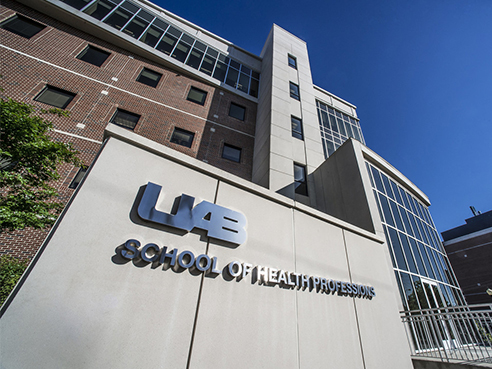 This new partnership will provide curriculum and training for law enforcement, first responders and more to interact with people who have special needs.The UAB School of Health Professions has partnered with the Interaction Advisory Group to provide curriculum and training to help public service officers — law enforcement, first responders, educators and more — interact safely and effectively with people who have special needs.
This new partnership will provide curriculum and training for law enforcement, first responders and more to interact with people who have special needs.The UAB School of Health Professions has partnered with the Interaction Advisory Group to provide curriculum and training to help public service officers — law enforcement, first responders, educators and more — interact safely and effectively with people who have special needs.
The partnership is a unique initiative in which the school has an equity stake in IAG.
“We firmly believe that higher education has no boundaries and should often enter a realm beyond traditional classrooms and coursework that focuses on a personal level of learning that benefits all of society,” said UAB School of Health Professions Dean Harold P. Jones, Ph.D. “We are a school that teaches a wide variety of health care professionals how to improve lives, so it is natural for us to partner with IAG to produce a curriculum for public servants who can ultimately protect lives.”
In the United States, one in five people lives with special needs, and the majority of special needs are not identifiable just by looking at someone. Identifying a person with special needs requires direct interaction and the ability to assess a situation. To accurately assess a person with special needs, and thereby keep them safe, requires specialized training.
This partnership combines the stringent academic standards of the UAB School of Health Professions with the experience and expertise of Dustin Chandler, IAG’s co-founder and president, who is a former police officer and the father of a child with special needs.
“There is clearly a lack of training on this subject matter, and I hear every day that more needs to be done,” Chandler said. “I speak with parents, organizations and first responders on a regular basis who are looking for assistance in addressing this issue through better understanding and open dialogue — that is the key objective of our program and training.”
Curriculum, materials and training are being developed by UAB in conjunction with the IAG team. The program will be available for public and private entities in fall 2016.
Training sessions will include:
-
Identification cues
-
Communication tips
-
Management techniques
-
De-escalation skills
-
Protection methods